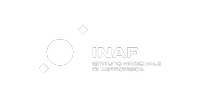Dual Site for SKA
The Members of the SKA Organisation agreed on a dual site solution for the Square Kilometre Array telescope, a crucial step towards building the world’s largest and most sensitive radio telescope. The ASKAP and MeerKAT precursor dishes will be incorporated into Phase I of the SKA which will deliver more science and will maximise on investments already made by both Australia and South Africa. The majority of the members were in favour of a dual-site implementation model for SKA. The members noted the report from the SKA Site Advisory Committee that both sites were well suited to hosting the SKA and that the report provided justification for the relative advantages and disadvantages of both locations, but that they identified Southern Africa as the preferred site. The members also received advice from the working group set up to look at dual site options. The majority of SKA dishes in Phase 1 will be built in South Africa, combined with MeerKAT. Further SKA dishes will be added to the ASKAP array in Australia. All the dishes and the mid frequency aperture arrays for Phase II of the SKA will be built in Southern Africa while the low frequency aperture array antennas for Phase I and II will be built in Australia / New Zealand. The agreement was reached by the Members of the SKA Organisation who did not bid to host the SKA (Canada, China, Italy, the Netherlands and the United Kingdom). The President of INAF (INAF represents Italy in the SKA Organisation) Giovanni Bignami said: “I'm very satisfied that the SKA Organisation has finally chosen. SKA is one of the largest and most important astronomy programmes that will be realized, and will help us resolve some of the many questions that science has in front of itself. We must now start to build it and not lose any more time”. The influence of the SKA project extends beyond radio astronomy. The design, construction and operation of the SKA have the potential to impact skills development, employment and economic growth in science, engineering and associated industries, not only in the host countries but in all partner countries.

